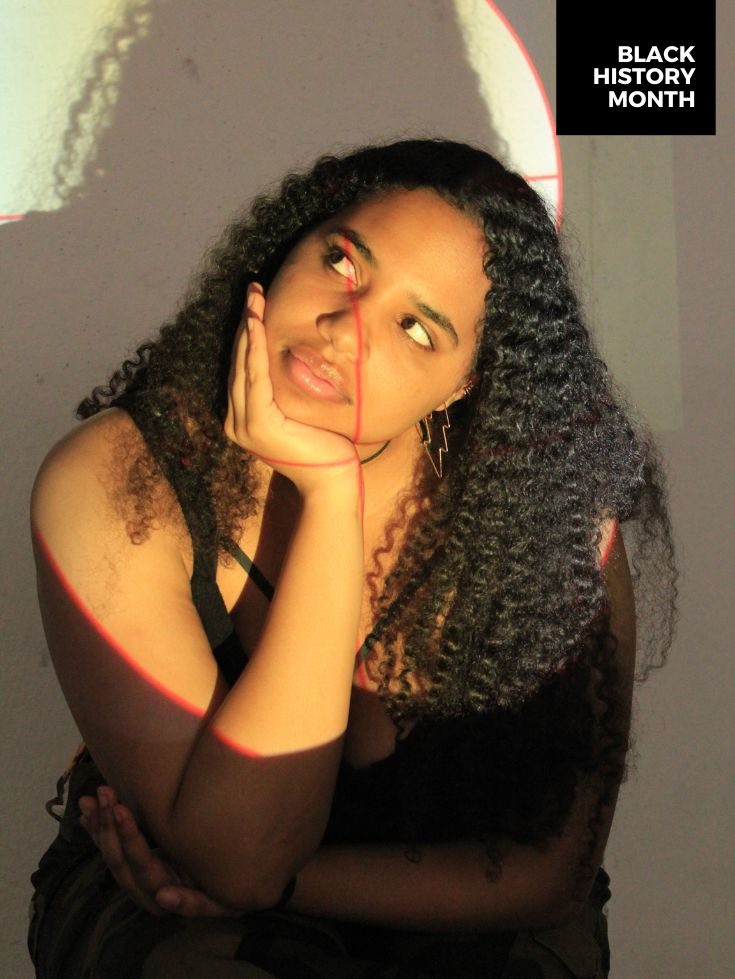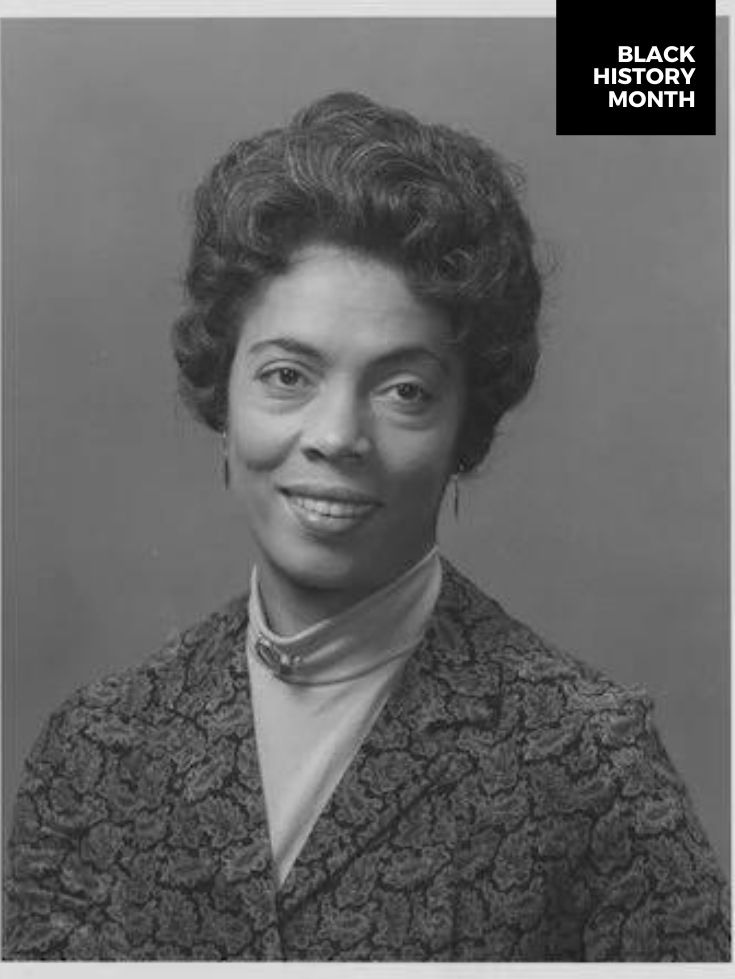Celebrating Black History Month
As the 2024 Black History Month comes to a close, DEEPS is celebrating our Black community members and honoring the Black scientists who have made invaluable contributions to our society. DEEPS Communications Assistant Angela Snider highlights three Black women (from the past, the present, and up-and-coming) who have made important contributions to the geosciences.
Hey y’all, it’s your favorite senior and DEEPS Communications Assistant, Angela! I don’t know if you’ve noticed, but it’s Black History Month, and as a proud Black woman, I have to celebrate my incredible sisters who have made strides in geoscience. We love a Black woman from infinity to infinitttttyyyy, from the beginning of time until the end, so I want to celebrate Black women from the past, the present, and those who are up-and-coming!
By 2019, one-third of those employed as environmental scientists and geoscientists were women, up from 22.5% in 2005. Meanwhile, the percentage of Black geoscientists fluctuated between 1% and 7.8% between 2005 and 2019, with not much changing by 2024. As you can imagine these percentages are even lower for black women. The incredible women featured in the next posts have persevered through gender and systemic racism to be where they are today.
Dr. Vernon R. Morris shares his perspective on the geoscience world: “As a Black academic geoscientist, I have seen firsthand how the academic environment can be unwelcoming, unfair, and inequitable simply because an individual does not fit into an acceptable gender or racial schema. I can recall many instances while in graduate school, during my postdoctoral fellowships, and even during my time at NASA where I was made to feel invisible, mistaken for the janitorial staff, or criminalized.”
While we celebrate these women during Black History Month, it is not just a month for us; we are Black every moment of our lives so make sure to continue to recognize and celebrate black trailblazers every moment you can!
"We are Black every moment of our lives so make sure to continue to recognize and celebrate Black trailblazers, not just in February, but every moment you can!"

This Black History Month, we pay tribute to the extraordinary Dr. Marguerite Thomas Williams, born on December 24, 1895, in Washington, D.C. Dr. Williams' journey began at the 'Normal School for Colored Girls,' leading to a scholarship at Howard University, where she pursued a Bachelor of Science degree in Geology. Despite facing racial and gender biases, her determination never wavered. She developed a keen understanding of natural sciences, graduating with her bachelor’s degree in 1923. Her academic pursuits continued at Columbia University, where she earned a Master’s Degree in Geology, later returning to Miner Teachers College as an assistant professor and Chair of the Division of Geography. Dr. Williams' passion for knowledge propelled her to the Catholic University of America, where her research on the Anacostia drainage basin led to groundbreaking insights on erosion and flooding.
In 1942, Dr. Williams broke monumental barriers by becoming the first African American, regardless of gender, to earn a Ph.D. in geology. Her work not only shattered ceilings in STEM but also laid foundational stones for future generations of Black scientists. Her teaching career at Miner Teachers College and Howard University until her retirement in 1955 was marked by her dedication to fostering a love for earth sciences among her students.
Today, Dr. Williams' legacy is a stark reminder of the persistent challenges in achieving diversity within geoscience. Despite her historic achievements, the underrepresentation of people of color and women in the field underscores the ongoing struggle for equity. Initiatives like "Unlearning Racism in Geoscience" (URGE) reflect Dr. Williams' enduring influence, striving to dismantle systemic barriers and cultivate a more inclusive scientific community.
"A Life Driven by a fascination of the natural sciences, and the love of educating youth."

Dr. Estella Atekwana, who was once told as a little girl in Cameroon that geology wasn't for girls, mirrors the experiences of many Black children and girls, including myself, who were told we couldn't pursue certain paths. Despite these early discouragements, Dr. Atekwana has become a leading figure in geobiology, a field she helped pioneer. Her impressive career now showcases over a hundred publications, thousands of citations, and substantial research funding, establishing her as an internationally recognized expert. Dr. Atekwana's pioneering work in biogeophysics, which investigates the interactions between microbes and geological materials, originated from a serendipitous discovery during a cleanup project at contaminated sites. This has led to diverse research topics ranging from biofilm growth to oil spill bioremediation, and even the exploration of life in deep ocean basins and on other planets.
Beyond her contributions to research, Dr. Atekwana has made a profound impact as an educator, mentoring numerous students, many of whom have gone on to earn PhDs from prestigious programs. Her commitment to teaching, mentoring, and promoting diversity in geoscience has earned her several accolades. Dr. Atekwana's journey underscores the value of cross-disciplinary dialogue and intellectual courage in addressing complex scientific challenges.
“ "Determine what skill sets you have that you can bring to the table and work with other people to solve the problems... While we are all experts in our particular areas, don't be afraid to venture out." ”
Leiaka Welcome's journey as a graduate student navigating her PhD during the pandemic encapsulates a story of resilience, adaptation, and self-discovery. Born in Trinidad and Tobago(y'all know I had to shout out a fellow Caribbean), Leiaka's early fascination with geology was sparked by childhood explorations and discussions about the island's natural resources. Her diverse interests led her to pursue a doctorate in geology with a graduate certificate in Humanitarian Engineering at the Colorado School of Mines, aiming to blend her love for geoscience with community engagement.
Leiaka's research focuses on understanding the stratigraphic architecture of arid continental rifts to explore the impacts of tectonics and climate on a regional and global scale. The pandemic and the challenges it brought, including academic setbacks and personal introspection, catalyzed a significant shift in her academic path. This period of isolation and reflection prompted Leiaka to embrace her identity fully and redefine her PhD journey on her terms, aiming to make geoscience more inclusive and accessible to underrepresented communities.
Her revised research now integrates geology with community-based approaches to study fluvial deposits in arid continental rifts, emphasizing the importance of cross-disciplinary relationships to comprehend geological impacts on society better. Identifying herself as an Earth Scientist and a Social Sedimentologist, Leiaka is dedicated to bridging the gap between sedimentology and societal needs, fostering better understanding and collaboration across disciplines. She emphasizes the significance of maintaining one's identity, seeking support in unwelcoming environments, and the importance of clear communication with advisors and peers. For Leiaka, the journey towards a PhD is marked not just by academic achievement but by personal growth, community engagement, and the pursuit of a more inclusive and understanding field of geoscience.
“ "DEI work is complex, uncomfortable at times, but very fundamental. It is more than a byline, fad, donation, or sticker, this is the responsibility of every geoscientist in general." ”